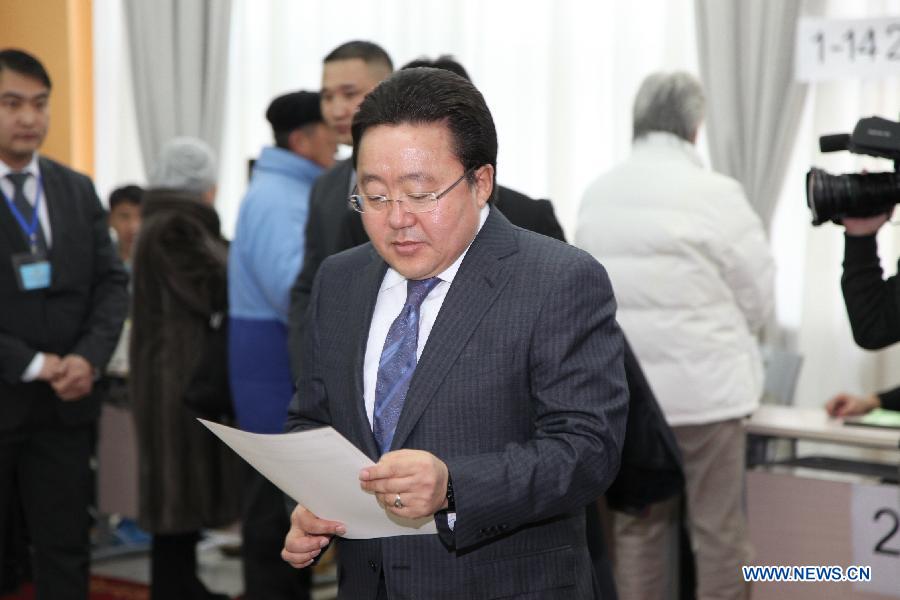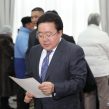
The Mongolian Democratic Party Wins in Local Elections
Publication: Eurasia Daily Monitor Volume: 9 Issue: 227
By:

On November 21, Mongolia held local elections for the Citizens’ Representative Khurals [councils] of the provinces and the capital city. The voting resulted in a victory for the Mongolian Democratic Party (DP), which already holds a majority in the State Ikh Khural—the national parliament—and controls the coalition government. According to the General Election Commission of Mongolia, the DP won in 12 provinces in addition to its earlier victory in the capital city of Ulaanbaatar. Whereas the opposition party, the Mongolian People’s Party (MPP), won majorities in the remaining nine provinces (Mongolian General Election Commission, December 2).
Since the country’s transition toward democracy in 1990, the MPP lost its dominant status in local elections. The MPP’s previous political strength in the countryside related to its inheritance of the former communist party’s institutional networks, with which other political parties had until now been unable to compete. Yet, the DP, which earlier this year was victorious in the national elections, has now clearly accumulated sufficient experience and resources to increase its visibility to also win in local politics.
A local elections victory provides several opportunities for Mongolian parties. First, the winning party is entitled to form the Citizens’ Representative Khural, an important consultative institution for local policies (including privatization, the nomination of governors, and formulating local interests). Second, the majority party is able to develop its local cadre through public appointments at the provincial and county levels. Consequently, this built-up dominance over local councils and governors’ offices enables the victorious political party to implement its regional policies and eventually to develop grassroots support networks for its party candidates in national parliamentary and presidential elections, which occur every four years. The other potential motivation for the importance Mongolia’s political parties ascribe to the local elections is connected to recent legal changes to the state budget. The new budget law now provides more leeway for provincial governments to control their budget and revenue sources (such as mining royalties and other taxes). For example, in the 2013 state budget, more funds are to be allocated to local authorities of Ulaanbaatar and two other key mining provinces: Orkhon and Umnugobi (Open Parliament, November 8).
Despite the struggles the MDP has had so far in controlling the national legislature and its fragile coalition government, the ruling party is clearly making some advances prior to the presidential election, which is due in May 2013. The DP’s tenuous coalition, which includes three other parties, has boasted some real successes to date: It has passed the 2013 state budget and the law on local elections. But its partner, the Mongolian People’s Revolutionary Party (MPRP), has threatened to leave the coalition if the ongoing appeal case of its founder, former President, Prime Minister, and Chairman of the Parliament Nambaryn Enkhbayar who has been indicted for misuse of public office, fails at the supreme court (Unuudur, August 3). Amid this political tumult, the DP’s local elections victory is thus a welcome turnaround in fortunes for the party’s leadership. And the DP has clearly gained more political capital as the country heads toward the upcoming presidential election season.
Although in large measure a ceremonial position, the presidency nonetheless holds important powers over the judiciary through the appointment of judges, defense due to its role as commander-in-chief of the armed forces, and foreign affairs as head of state. Also, as a head of the National Security Council (the highest governmental consultative body), the president holds important power over any matters related to national security. For instance, using this power, the current president suspended the issuance and processing of mining and exploration licenses in 2010. Therefore, to continue its dominance at all levels of the country’s politics, the DP will need to back its presidential candidate—either current President Elbegdorj or someone new—for the upcoming election.
The recent local elections have positively demonstrated that the Mongolian electoral system has been institutionalized successfully. First, the computerized ballot counting and use of bio-metric identification cards did not arouse any disputes or suspicions from the political parties, unlike during their first use in the parliamentary elections in June. Second, restrictions on alcohol sale and consumption during Election Day, as well as the increased compliance with electoral laws and procedures, resulted in peaceful, orderly parliamentary and local elections in comparison with earlier contests in Mongolia. Third, the 30-percent gender quota for political party candidates resulted in a notable increased role for women in politics. The number of women in parliament has now reached 11 out of 76 seats, which is a historic high (https://www.mongolianembassy.org.au/archives/701). Finally, the political parties have agreed to conduct parliamentary and local elections simultaneously as of 2016 to stimulate voter turnout, to reduce the state’s organizational costs as well as political parties’ costs to participate, and importantly, to minimize the negative impact that a quick succession of three elections has on government operations and the daily lives of people.
Yet, on the negative side, this year’s elections illustrated that the DP continues to play a de-constructive role by unilaterally setting the rules for Mongolia’s electoral democracy. The DP majority in the parliament is withholding the recognition of the MPP parliamentary group’s status as the opposition because this status might enable the MPP to limit the DP majority from approving key bills such as the election laws and key decisions like the state budget. At the same time, the two largest parties, the DP and MPP, continue to dominate the political system by marginalizing third parties. The other parties won only 23 combined seats in the local elections whereas the DP won 379 and the MPP 334 of the total seats of provincial Citizens’ Representative Khurals (Mongolian General Election Commission, December 2). Smaller parties clearly lack resources, cadres and local networks, while the major parties are able to attract the support of powerful business groups. Although all players appear to be complying with the current legislative framework, the competing interests of political parties, along with business groups and powerful individuals, seem to be overshadowing some of the positive effects of Mongolia’s democratic consolidation and economic development achieved over the past two decades.




